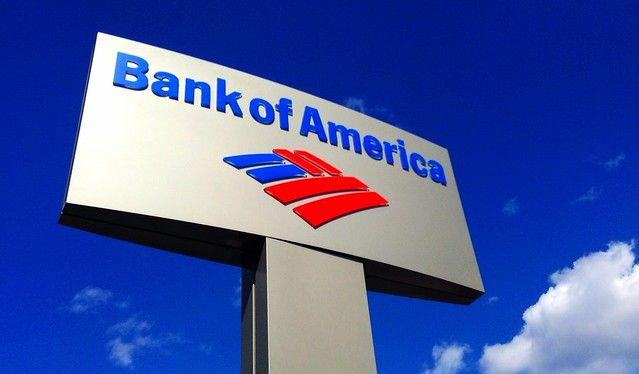Photo Credit To Mike Mozart Via Flickr
Bank of America filed a patent that seeks to handle one of the biggest issues afflicting the crypto wallet industry, security. In their patent filing, the bank describes a concept of a multi-tiered security system for crypto-wallets.
Partitioned Wallet
According to the filing, users will be able to partition their wallet and hold their crypto assets in the different partitions. Each compartment will be secured by a password, which makes it even harder for hackers to steal crypto assets.
The patent filing indicated that Manu Kurian, a senior tech manager at the firm, invented the system. This system will be a P2P network, which will also be decentralized. Users will secure their crypto holdings with single or multiple passwords. For instance, based on which password a user provides, they will be given access to a different partition in the wallet. The filing did not indicate whether there would be a limit on the tiers or partitions that can be created. Each password will provide access to a single tier. This is akin to having a person with a car key that can open your car door but cannot open the boot.
In the application background, it is stated that there is a need for an improved crypto wallet infrastructure. This is because encryption keys are sometimes lost and third parties do not give users full control of their crypto.
Usability and Security Combined
This wallet concept hopes to combine privacy, usability, security, and anonymity. To access the wallet you will require a password or some type of biometric data before you get to the main core. In this new concept, the bank also describes a system where only a user in a given region can enter the password. It will ensure that remote hackers will be effectively neutralized. This multi-tiered concept can be applied in different ways. For instance, the central core can be associated with more crypto holdings than the first layer.
This wallet might be similar to a multi-sig wallet that requires two or more passwords but it is more complex. In the proposed system, users will need to maintain the private keys or trust them with third parties, which will ensure these private keys are secure. Such arrangements are in place to mitigate the risk of losing or forgetting a private key.
Holding Tokens
The patent filing makes it clear that users will be able to hold funds, tokens, or other assets that can be stored in a P2P decentralized system. Additionally, the wallet can be used to perform network-specific tasks related to P2P networks such as transferring assets.
Thus far, BoA has won 36 patent applications in the blockchain sector and 31 others are pending. While BoA has filed the most blockchain-related patents, it does not appear to have much faith in crypto. The fact that it has joined a large network of international banks that have banned crypto transactions from going through their system shows it has little faith in digital currencies.
Notice: Information contained herein is not and should not be construed as an offer, solicitation, or recommendation to buy or sell securities. The information has been obtained from sources we believe to be reliable; however no guarantee is made or implied with respect to its accuracy, timeliness, or completeness. Authors may own the crypto currency they discuss. The information and content are subject to change without notice. Visionary Financial and its affiliates do not provide investment, tax, legal or accounting advice. This material has been prepared for informational purposes only and is the opinion of the author, and is not intended to provide, and should not be relied on for, investment, tax, legal, accounting advice. You should consult your own investment, tax, legal and accounting advisors before engaging in any transaction. All content published by Visionary Financial is not an endorsement whatsoever. Please also visit our Privacy policy; disclaimer; and terms and conditions page for further information.

